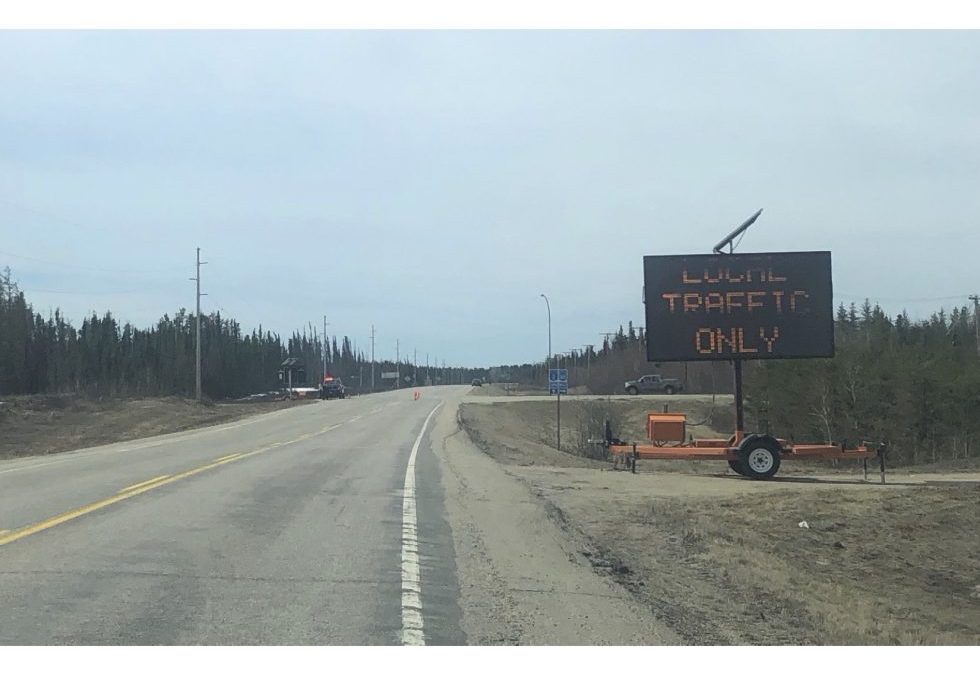A group representing leaders in northwest Sask. is raising several concerns with the public health order which is restricting travel in that region.
In April, the province limited non-essential travel and prohibited movement between northern communities as a method of helping to stop the spread of COVID-19.
Checkpoints have been established as an added measure.
The Treaty Ten Pandemic Council of the North West Communities Incident Response Team wrote to Chief Medical Officer of Health Dr. Saqib Shahab Sunday.
“The lack of Indigenous people and Indigenous cultural participation at the roadblocks including the absence of Indigenous language speakers. This is a significant barrier to educating the public and encouraging cooperation with pandemic initiatives,” the eight-page letter stated. “Checkpoint staff are not honouring letters from Chiefs and Councils authorizing travel, which has liability ramifications related to Treaty and Indigenous rights.”
The letter outlined food security issues and that the North should not be perceived as a jail.
“The Treaty Ten Pandemic Council respectfully demands your consistent, predictable and meaningful collaboration with the NWCICC. Only with agreed-to communication protocols that reflect the rights of consultation, and a spirit of mutual respect and collaboration, can we build the trust needed to succeed together,” said the letter.
Premier Scott Moe addressed the letter Monday saying that Government Relations and Northern Minister Lori Carr has been in weekly discussions with Chiefs and Mayors and that the Sask. Public Safety Agency has been in daily talks with leaders in affected communities.
But Moe and the President for the Public Safety Agency Marlo Pritchard recognize that there have been complaints regarding the check stops and what movement travellers have.
Moe said concerns are followed up with on an individual basis. Moe said that decisions in the North have been shaped in consultation with leaders in that area.
(Photo: Checkpoint established near La Ronge. Credit Sam Campling.)
